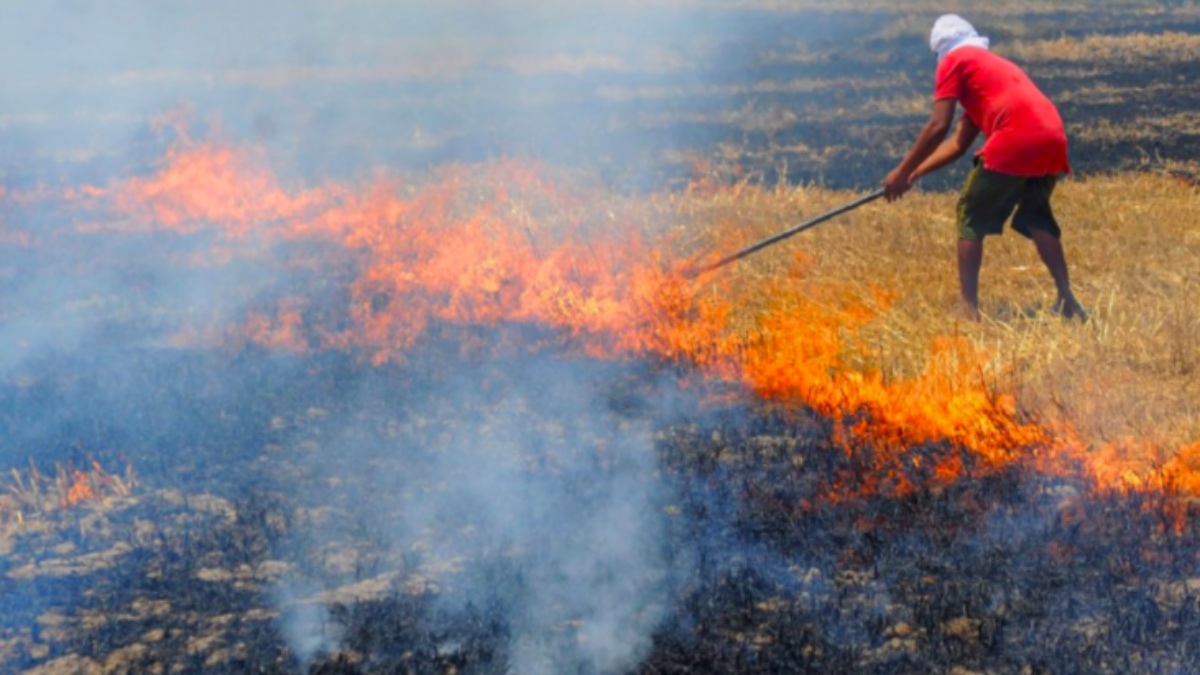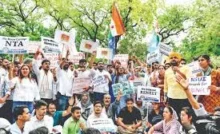We are back to the air pollution debate in Delhi. The city is shutting down schools and asking people to work from home. The Air Quality Index (AQI) last week was around 500 in the National Capital Region, putting it in “very hazardous” territory. Shutting down schools, reducing economic activities are political knee jerk reactions and not solutions. All the fingers point to the rice and wheat growers in the states of Punjab and Haryana burning paddy stubbles at the cost of Delhi’s health.
As with other years, most debates on air pollution are focused on fixing the responsibility rather than this health emergency, with discussions centering on the long term health impact and also on the reputation of the country (remember all the foreign embassies are in Delhi)—we as an emerging global power are not able to manage this issue in our capital city.
In the midst of all the blame shifting, there is not as much discussion on the solution to this problem–immediate, mid-term and long term. So we do not see environmental experts, or scientists from state agricultural universities and research stations or medical professionals, invited to participate in these debates.
It is important to break down the problem to its components. Delhi and NCR air quality, during this part of the year, worsens because of vehicular emissions, massive construction activities, low wind speed, high moisture, cold weather, in addition to smoke from stubble burning. Smoke contributes to the problem, but is not solely responsible. In fact, the AQI in Chandigarh, the capital of Punjab and Haryana, has averaged around 150 in the past few weeks.
My argument is not to support the stubble burning or give it a clean chit. We should not accept this practice as the compulsion of our living in the proximity of “granary of the country”. However, we should also not squarely blame the farmers who feed the nation without understanding why they have to burn the stubble. Farmers have to prepare the land for wheat sowing after paddy has been harvested in the months of September-October. During recent years, manual harvesting of paddy has been replaced by machines. While manual harvesting used to leave small stubble closer to the ground, machine harvesters leave 1-2 feet of stubble standing in the field. As per current practice, it requires multiple ploughings to make land even for wheat cultivation. Any delay in wheat sowing impacts yield and the quality of wheat grains and hence the economic value for the farmers. Since the time gap is limited after rice harvesting, burning is the only solution available to them despite the smoke adversely impacting everyone, including their own families.
Some solutions are being tried for microbial decomposition of the paddy subbles but the scale and acceptance is very limited. However, we need a combination of solutions to address the issue which is caused by the mechanization of the agriculture and also the deep-rooted cultural mindset of over-cultivating the land before sowing of the wheat crop. Farmers have age old cultural belief of ploughing the land multiple times before sowing the seed.
A promising solution will be the concept of Zero-Tillage that has been an accepted practice in many parts of the world where farmers need to manage large tracts of land. Zero tillage requires mechanical sowing of seeds while knocking off stubble from the previous crop simultaneously. In addition to this, farmers need to be educated on the hazards of over cultivation of the land prior to wheat sowing. Avoiding over cultivation will help conserve the soil structure, and moisture and help save significant amount of diesel currently used for over cultivating the land. A combination of these initiatives can help save the time to the next sowing, reduce costs and lead to better crop output while doing away with the need for burning stubble and the subsequent air pollution. Work has been done on Zero Tillage in West Bengal on wheat and jute and the acceptance by farmers is encouraging.
North Indian farmers have been traditional innovators and will be open to the new technology and cultural practices, provided the value proposition is made clear. We need the political will to encourage and empower the scientific community and agriculture extension centers to promote mechanized cultivation and concept of zero tillage. These may need to be initially subsidized as well. This is the viable and win-win solution for all stakeholders.
Rakesh K. Chitkara has led public policy practice for major US corporations, including Abbott Lab, General Electric, Dow Chemical and Monsanto.





